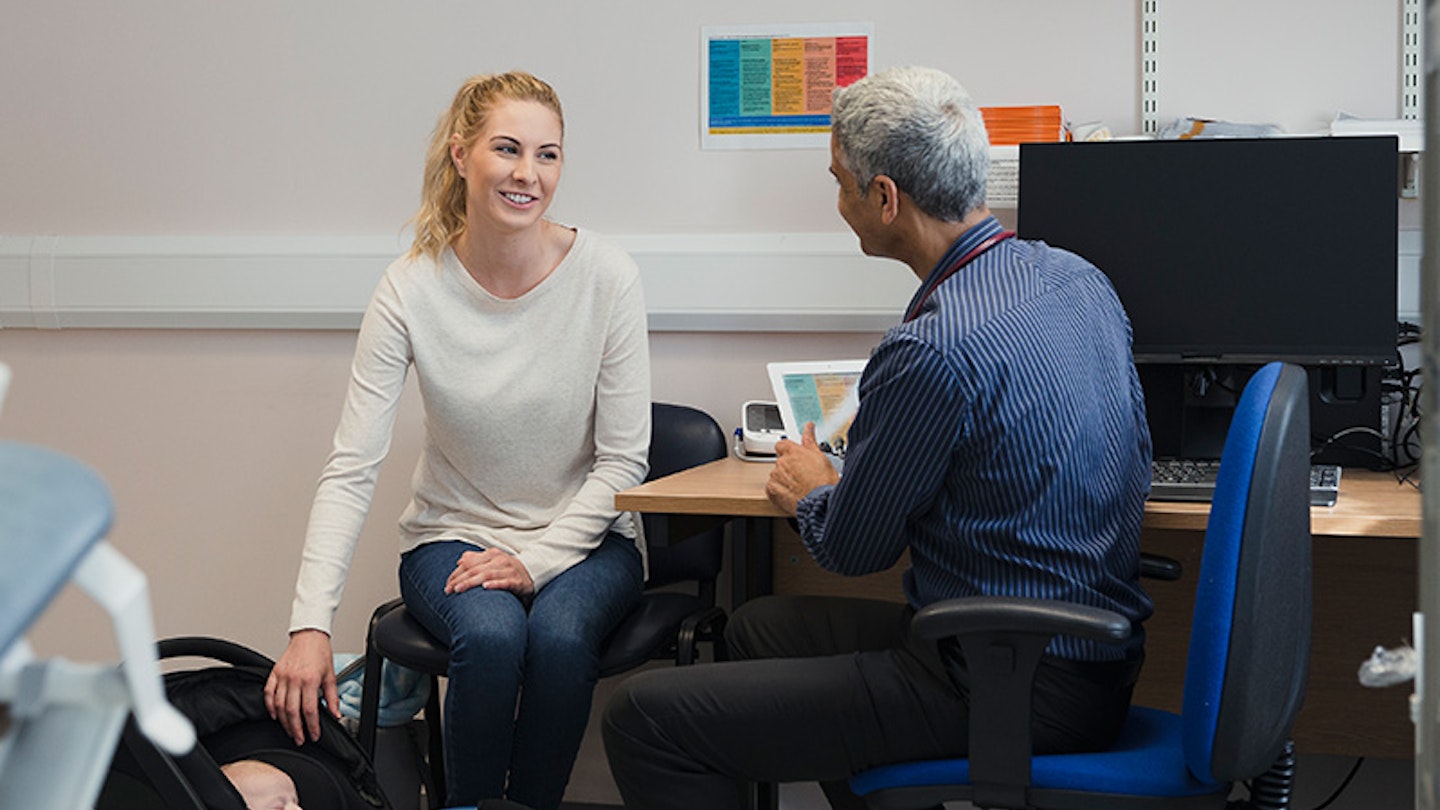Known as the 6-week postnatal check, your first post-birth doctor’s appointment might actually take place anytime between six and eight weeks after your baby’s birth and sometimes before or after your 6-8 week baby check.
It’s a great way for your GP to make sure you’re coping OK with parenthood and recovering from the birth well – and the perfect opportunity for your GP and your baby to meet.
Keep in mind that every doctor will handle this check-up differently and time limitations can mean you’ll feel all of your issues haven’t been addressed. So get any questions you have ready for them – don’t be afraid to get out a long list of issues when you get there.
How to book your 6-week baby check
You may be offered an appointment at the hospital or midwifery unit where you had your baby, but you’ll probably need to book an appointment with your doctor. While a 10-minute appointment is the normal length you’ll be given, you can ask for a longer session if you think that isn’t long enough for all your concerns.
‘GPs want to ensure that the six-week check is a positive experience but we have a long checklist to get through and it can be difficult to do this within the standard 10-minute appointment so we would always encourage new mums to request a longer slot if possible,’ says Royal College of GP’s Chairwoman Dr Maureen Baker.
‘It is also important the six-week check is not seen as a one-off, but as part of the ongoing relationship that the GP builds up with the new mum and her baby over time,’ she says.
What happens at your post-baby checkup
You'll be asked how you're feeling as part of a general discussion about your mental health and wellbeing.
You’ll be asked if you’ve had a period since your baby’s birth and if you’re having any vaginal discharge.
You’ll have your blood pressure taken.
If you had stitches during your baby’s birth, either vaginally or following a C-section, these may be examined to check they’ve healed.
Your GP may talk to you about booking a smear test if you haven’t had one in the last three years.
If you are overweight or obese with a BMI of 30 or more, you may be weighed and given advice on healthy eating and physical activity.
Your GP will ask about contraception and what your plans are.
Don’t feel bad about asking if you think your GP’s missed anything!
What you should tell your doctor
Be honest with your doctor about any problems you’re having, especially with your emotional wellbeing and whether you’re feeling really low and overwhelmed, aren’t sure about something or you constantly need the loo.
The more they know, the more they'll be able to help you – or let you know if you need to book an appointment with a specialist and help arrange this.
Before you leave, give your list a quick once over to check that you and your GP haven’t missed anything.
